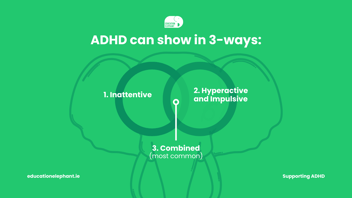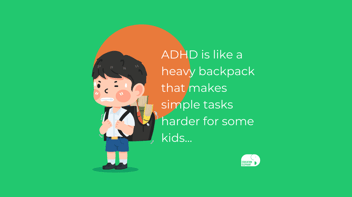.png)
Getting a handle on what ADHD really means can clear up a lot of confusion. There are plenty of myths out there that can make it hard for folks to reach out for the help they need.
We're going to squash eight of those myths in this article, so you can better support your students or someone close to you. But first, let's understand what ADHD is not to guide you on your path to understanding ADHD better. Ready to learn? Let’s go!
Myth 1: Only boys or men get ADHD
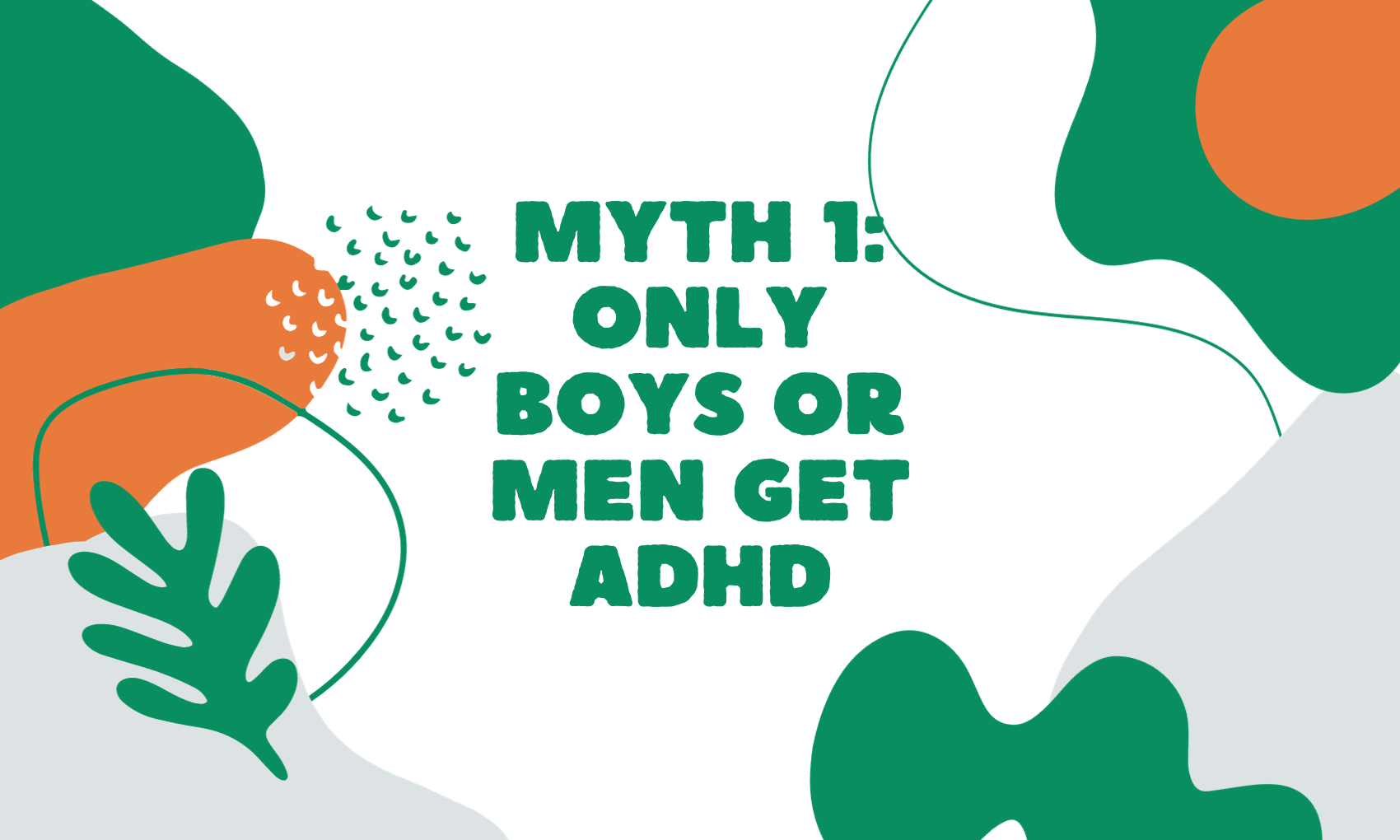
ADHD is the number one neurodiversity found in kids, impacting around 5 to 7 out of every 100 children. It affects both boys and girls, but in slightly different ways. For example, you might notice boys with ADHD often talk a lot, can't sit still, or may interrupt others more than usual.
On the other hand, girls with ADHD might act a bit differently. They might seem like they're off in their own world, daydreaming, or they might start things but have a hard time finishing them. These signs can be quieter and less obvious, so they don't always get as much notice from teachers as the behaviours you might see in boys.
Myth 2: Children with ADHD have an intellectual difficulty
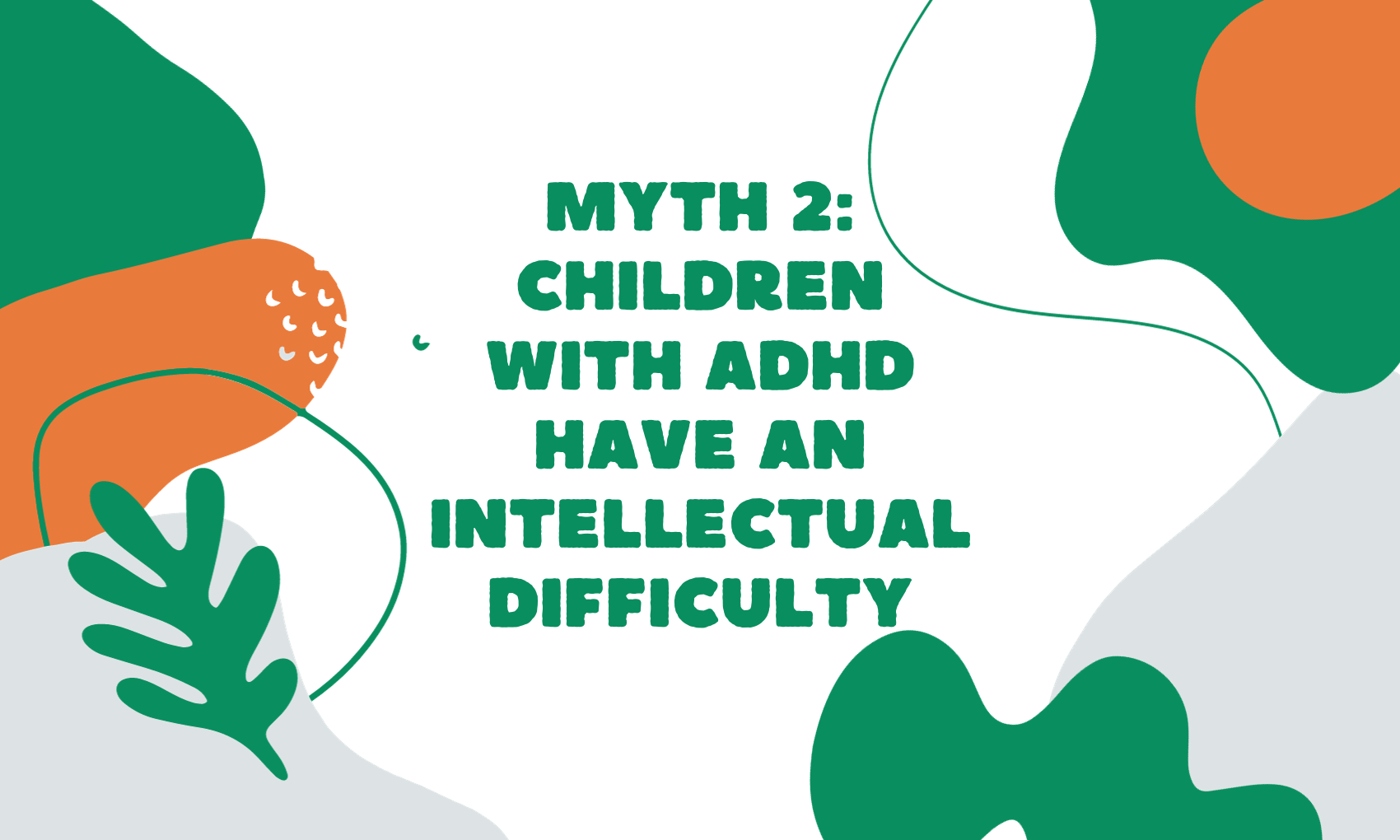
ADHD might make learning a bit tougher for some kids, but it's important to remember it's not the same as having a learning impairment. Kids with ADHD might find it hard to focus or might seem really energetic, which can make schoolwork challenging.
Learn more about ADHD, how it changes a child's life, how to know if a child has it, and the ways to help them all from the comfort of your home with our self-paced online courses.
It's also common for kids with ADHD to be mistaken for having learning difficulties because the symptoms can look pretty similar. But even though ADHD can make some parts of school harder, it also comes with its own set of superpowers, like being really resilient and having a positive outlook on life.
Myth 3: ADHD will disappear after childhood
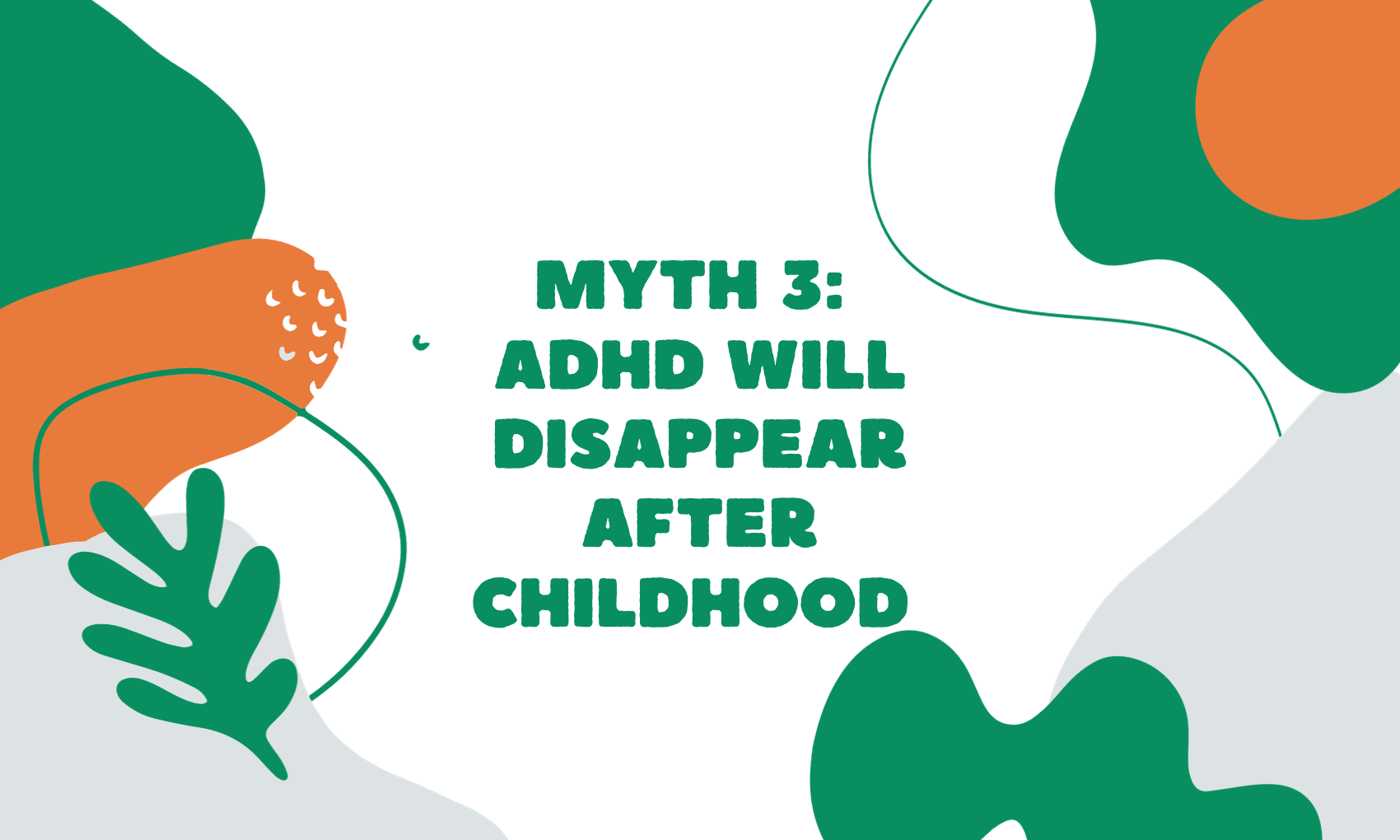
Think of ADHD like a backpack that some kids carry. Most kids can be fidgety, make quick decisions without thinking, or find it hard to focus every now and then. But for kids with ADHD, it's like this backpack is so heavy it makes doing everyday things, like schoolwork or chores, much harder. They might feel this weight at school and at home too.
ADHD is something you'd notice early on, way before someone becomes a teenager. Sometimes you might spot it when they're really little, even in play-school. But figuring out for sure if it's ADHD usually happens when they're a bit older.
When kids are young, this ADHD backpack might make them act without thinking or super energetic. But as they grow, during secondary school and as they get more mature, it's less about being super active and more about finding it really tough to pay attention.
Even though some kids might find ways to lighten this backpack as they grow up, around half to most of them will still feel its weight well into adulthood. It's important for us as teachers to understand this, so we can help make their backpack feel a bit lighter every day.
Myth 4: Children with ADHD are always hyperactive
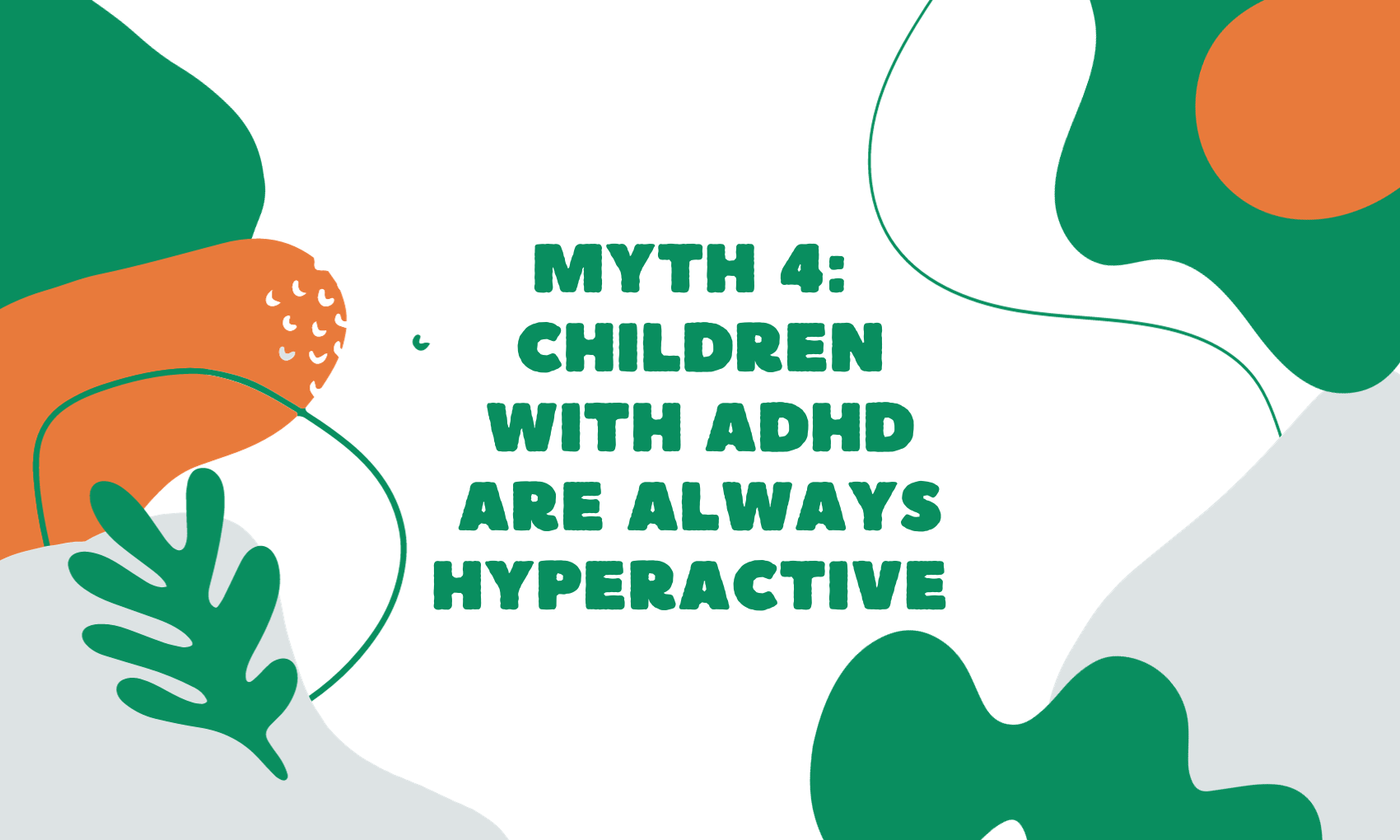
Ever noticed how some kids just seem to have endless energy? While it's tempting to think this might be ADHD, there's a bit more to it. Not all kids with ADHD are bouncing off the walls; in fact, some may not seem high-energy at all.
For a child to be diagnosed with ADHD, they need to consistently show difficulty in managing their energy levels and controlling their impulses over a long period. It's not just about having a lot of energy; it's about finding it tough to regulate that energy and impulses in various situations.
The main signs of ADHD to look out for are hyperactivity, impulsivity, and not paying attention. But remember, every child is different, and these can show up in many ways. If you're curious about the specifics of ADHD symptoms, check out our previous post on the topic!
Myth 5: Bad parenting can cause ADHD in children
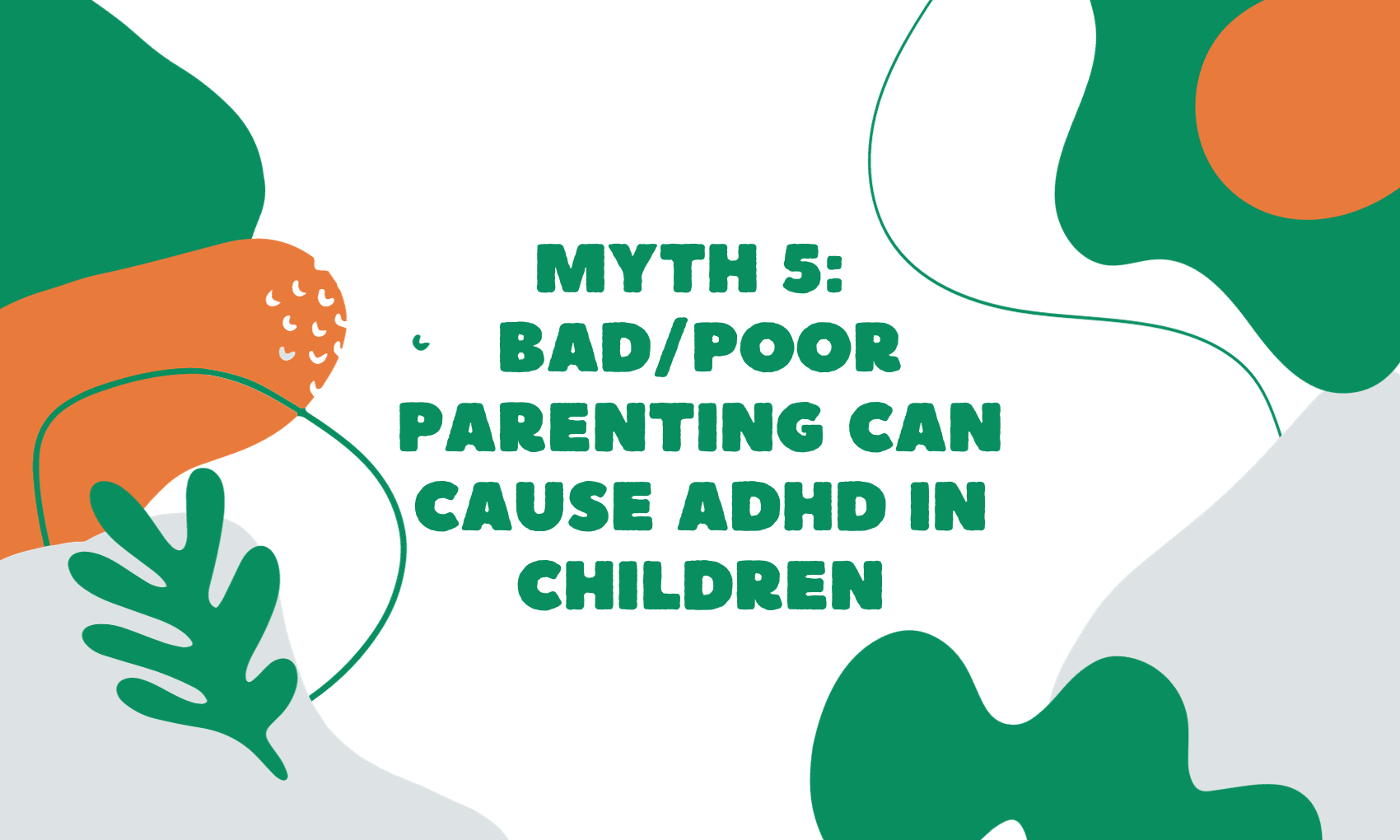
ADHD, or Attention Deficit Hyperactivity Disorder, is something people are born with, kind of like the colour of their eyes or hair. Scientists believe that our genes, the little instructions that tell our bodies how to grow and work, play a big part in someone having ADHD.
It's not about who raises you or how they do it; if someone's going to have ADHD, they're born with that possibility because of their genetics.
Now, even though how a child is raised doesn't cause ADHD, the way parents and teachers support and guide a child with ADHD can really make a difference. Certain ways of helping and teaching can improve how a child with ADHD manages their day-to-day challenges.
So, while parents and teachers don't cause ADHD, they're a huge part of helping kids with ADHD navigate the world more easily.
Myth 6: Children with ADHD are lazy
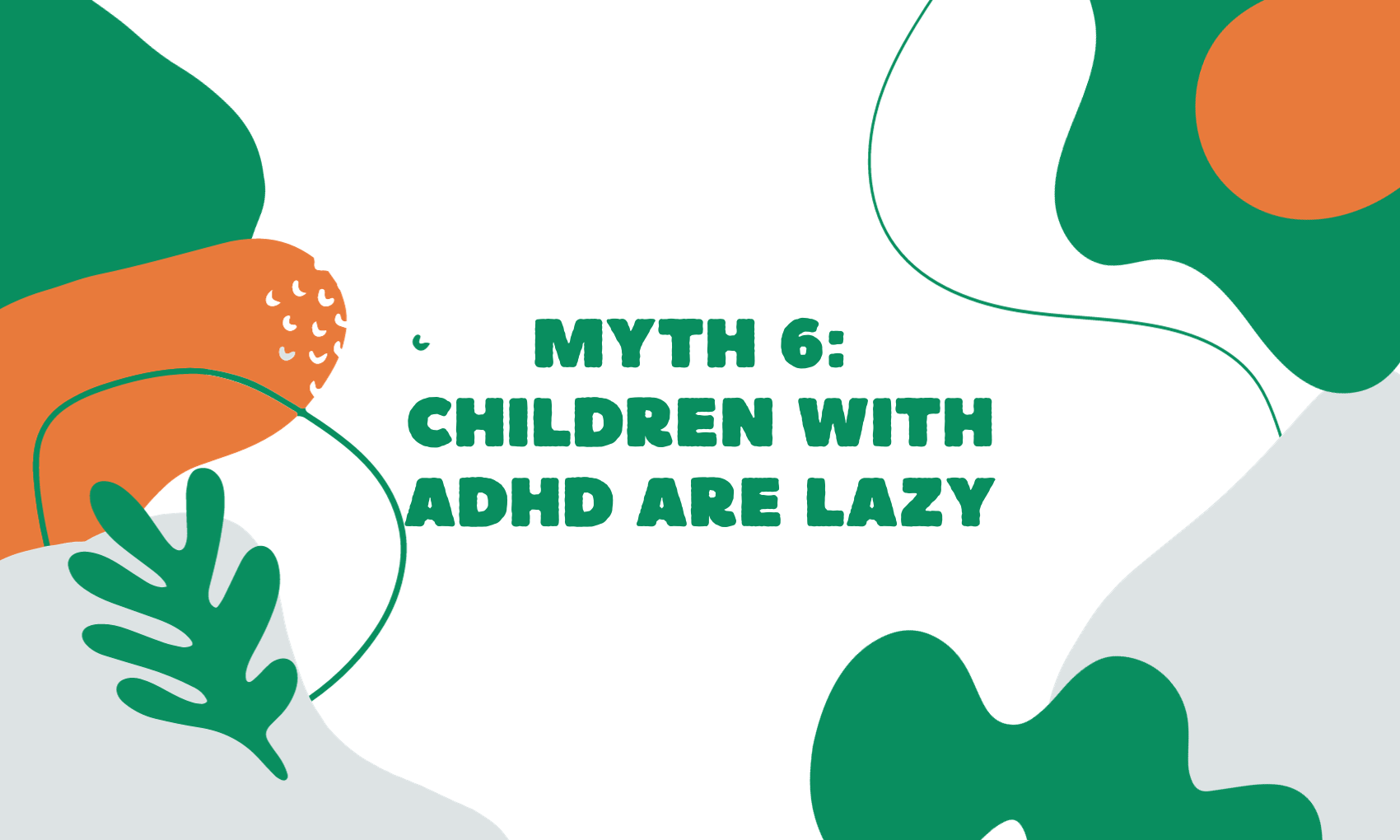
Children with ADHD are no different from other children who want to please parents and teachers. They exert as much effort as those without the disorder.
Still, their condition keeps them from getting to the finish line because they're easily distracted along the way. Still, a better way of putting it would be a lack of motivation to begin tasks, especially ones that aren't interesting. They'll eventually get there; it will just take a little longer.
Understanding the difference between what's just typical kid behaviour and what might be ADHD can be tricky. Seeing a few ADHD-like actions here and there, or noticing them only in certain situations, usually isn't a sign of ADHD. However, if a child consistently shows multiple signs of ADHD in every part of their life—at home, in school, and during play—it's important to pay attention and maybe seek some advice.
Myth 7: ADHD is not a 'real' condition
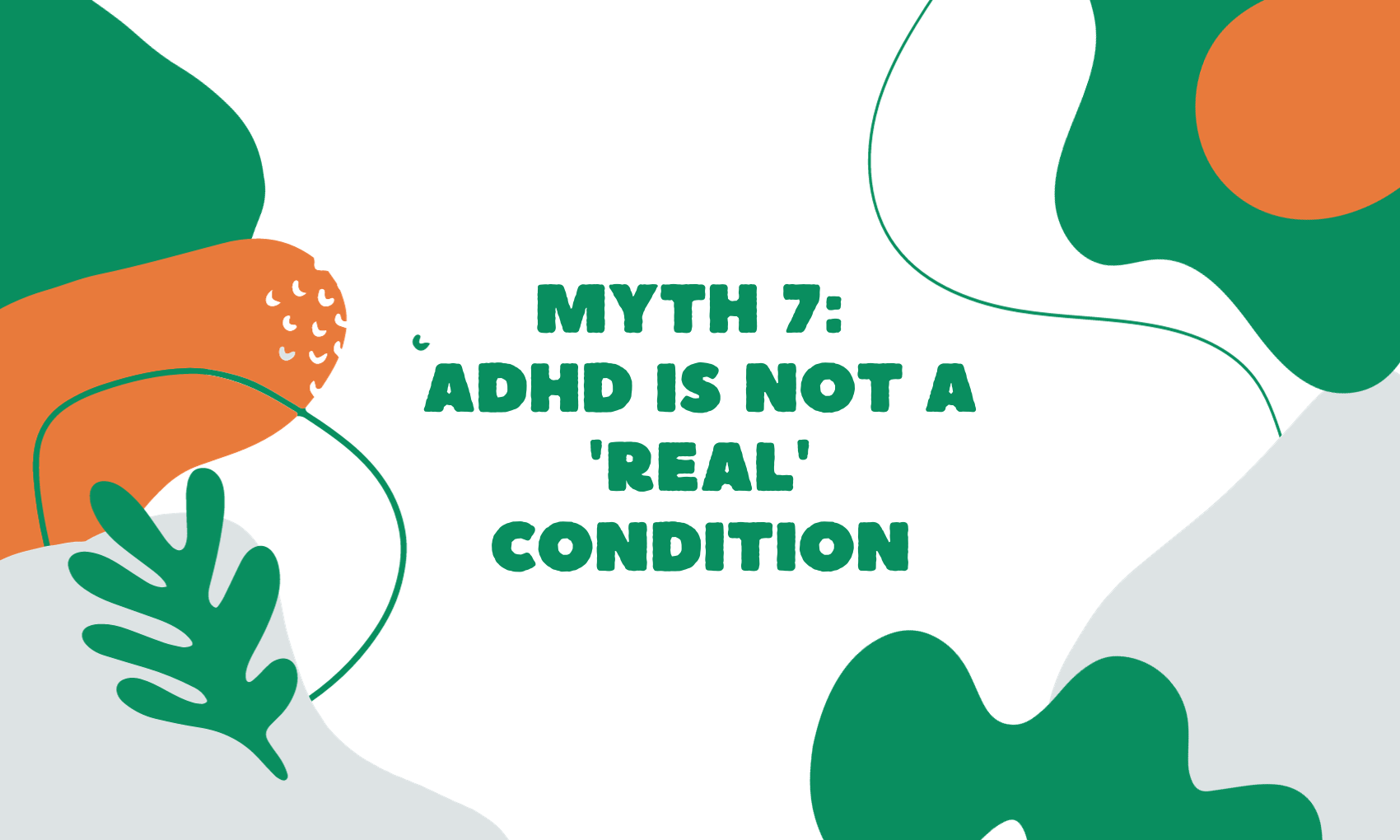
Imagine ADHD like this: a kid's brain is like a super-fast Ferrari, but their ability to stop and think before acting? Those are more like bicycle brakes. This means sometimes they go full speed when they should slow down or stop—whether that's talking, moving around, or paying attention.
'Kids with ADHD aren't trying to be difficult.'
They're dealing with a brain that's racing ahead without the brakes to slow it down. It's not about misbehaving or not trying hard enough. They're learning to control their super-fast Ferrari brain, and they need understanding and support to show them how, not labels.
Find out how to use self-control methods to help kids with ADHD behave better at home and school with our online course which teaches self-regulation and behaviour support strategies you can put into action right away!
Myth 8: Too much sugar causes ADHD
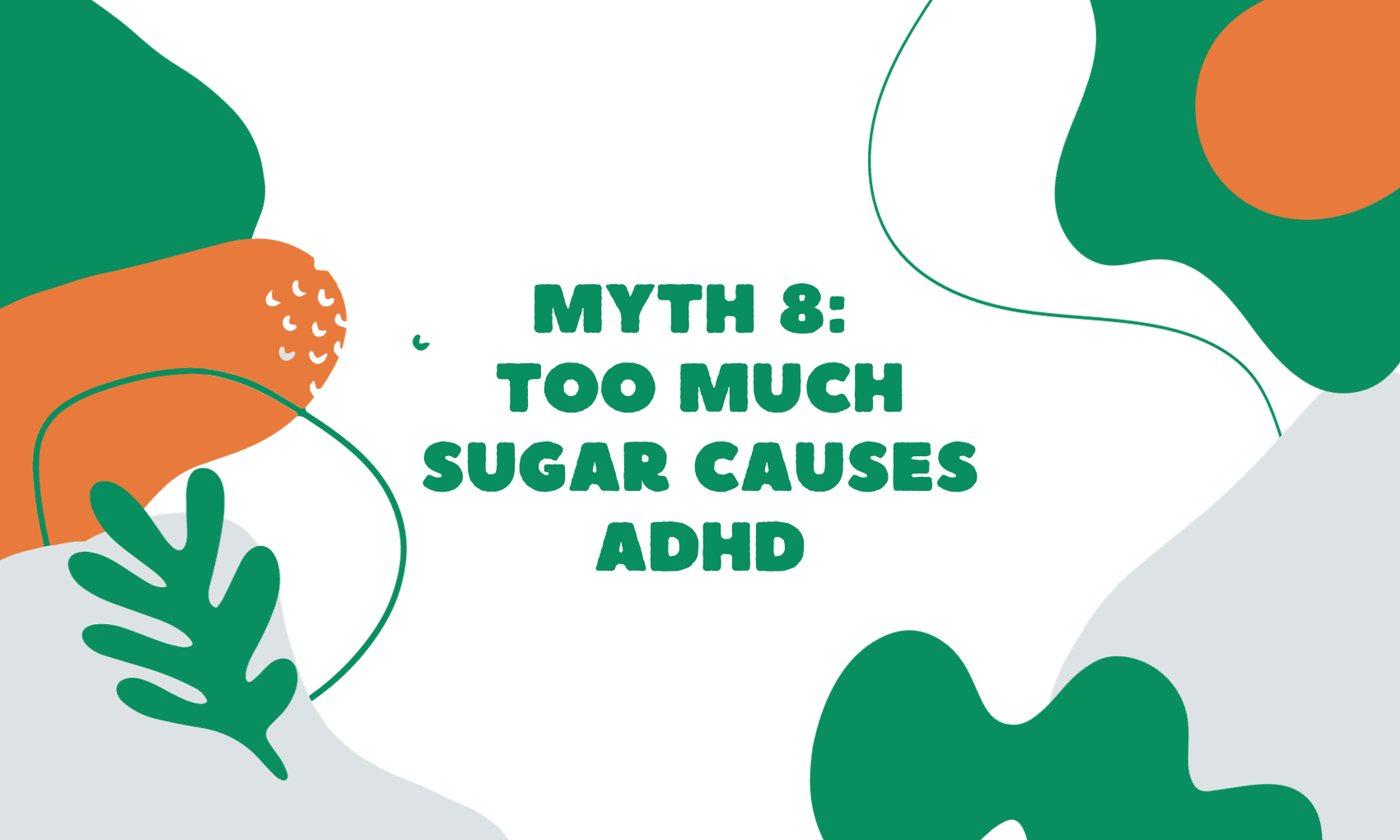
Researchers are still figuring out how ADHD is linked to the environment around us, but it's clear that there's not just one thing that causes it. The examples below for examples don't directly cause ADHD but, they can make symptoms tougher for some kids to handle:
- Watching too much television
- Eating sugar
- Family stress (poverty, family conflict)
- Traumatic experiences
ADHD itself can also stir up trouble at home. Even though family stress doesn't cause ADHD, it can affect how ADHD looks in a child and lead to other issues, including behaviour that might go against social norms. So, it's important to look at the whole picture when understanding and supporting a child with ADHD.
Don't forget your free guide we made to help you start taking action today:
A Practical Checklist for managing children with ADHD (FREE DOWNLOAD)
On that note...
ADHD can be tricky to understand, and there's a lot of wrong info out there that doesn't help. If you're looking to really get how to support kids with ADHD, our 'Introduction to Understanding ADHD in Children and Young People' course is perfect for you. It's packed with the newest, science-backed tips and tricks for helping these kids do their best at school, with friends, and at home.
Learn More, Teach Better
If you are looking to dive deeper into ADHD, our self-paced courses on support strategies, interventions and the roadmap to help you thrive in working with children with ADHD at home and in the classroom you can explore our courses to help you master ADHD here.
Happy Learning from The Team at Education Elephant! 🐘
First time here?
We condense ADHD, Dyslexia, Autism, Dyspraxia and more into bite size pieces so you don't have to eat the whole elephant in one.
We are here to break it all down for you
Take the week to learn more about ADHD, and you'll see you already know more than you think! It's all about putting names to those behaviours and emotions we've all seen before.
You've got this; we're just here to help you connect the dots and help you support children as best you can! 🐘

